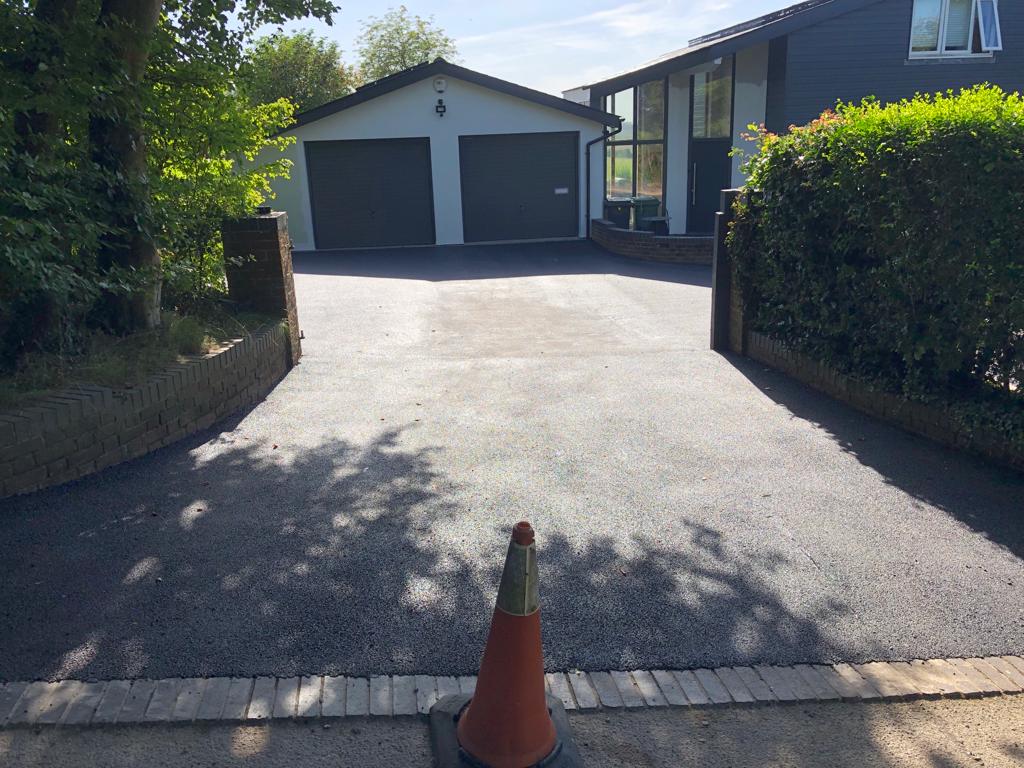Introduction
Your asphalt driveway plays a crucial role in both the functionality and appearance of your property. Over time, even the most well-installed surfaces will show signs of wear. When cracks, fading, or surface issues appear, the question often arises: should you resurface or replace? At Sunshine Road Tech, we help property owners in Sunshine make informed decisions that balance cost, performance, and long-term value.
Understanding the Difference: Resurfacing vs. Replacement
Before deciding which option is right, it’s important to understand what each involves.
What Is Resurfacing?
Resurfacing is the process of adding a new layer of asphalt over the existing surface. This refreshes the appearance and performance of the driveway without removing the original base.
- Typically adds 25–40mm of new asphalt
- Corrects minor surface issues
- Extends the lifespan by 8–15 years
What Is Replacement?
Replacement involves completely removing the old asphalt and rebuilding the driveway from the base up.
- Removes all layers, including the base if damaged
- Allows for a brand-new subgrade and surface
- Suitable for severe damage or structural failure
When Resurfacing Is the Right Option
Resurfacing is ideal when the underlying base is still intact but the surface layer is showing signs of age or wear.
Signs You Can Resurface
- Small to moderate cracks (not deep or widespread)
- Faded colour or oxidised surface
- Minor drainage issues that can be corrected
- No significant base movement or subsidence
- Driveway is under 20 years old with a good foundation
Resurfacing is a cost-effective option that can breathe new life into your driveway, making it look and perform like new without the higher cost of full reconstruction.
When Replacement Is Necessary
Replacement is the best approach when the surface and foundation have deteriorated beyond repair.
Signs You Need a Full Replacement
- Large, deep or alligator cracking
- Potholes or significant surface deformation
- Water pooling and poor drainage caused by shifting base
- Signs of base failure such as soft spots or dips
- Driveway over 20–25 years old with a history of issues
If resurfacing is attempted over a failing base, the new layer may crack or collapse within a few years. Rebuilding ensures a stable, long-term solution.
Factors That Influence the Decision
Traffic Load
If your driveway supports heavy vehicles, resurfacing may not be sufficient if structural wear is already present.
Drainage and Slope
Persistent water issues often indicate problems below the surface. These need to be addressed at the base level, requiring full replacement.
Budget vs. Longevity
Resurfacing is more affordable in the short term, while replacement provides a longer-lasting solution that may reduce future repair costs.
Previous Repairs
Multiple patch jobs or overlays may reduce the effectiveness of further resurfacing. A clean replacement can provide a uniform, stronger finish.
The Role of Professional Assessment
At Sunshine Road Tech, we conduct thorough inspections of driveways in Sunshine to determine the most suitable approach. Our team evaluates:
- Base integrity and compaction
- Existing surface condition
- Drainage performance
- Overall age and traffic use
Based on this, we recommend either resurfacing or replacement with a clear breakdown of expected outcomes and costs.
Conclusion
Deciding whether to resurface or replace your asphalt driveway depends on a range of factors including age, surface condition, base stability, and future usage. While resurfacing is a smart, economical choice for well-maintained driveways with minor wear, replacement is essential when structural damage threatens long-term performance.
For expert advice tailored to your property in Sunshine, contact Sunshine Road Tech today. We’ll provide a clear, honest assessment and a professional solution designed to maximise durability and value.
Call us on: 03 4159 2883
Click here to find out more about Sunshine Road Tech
Click here to complete our contact form and see how we can help with your driveway needs.

